At first, I thought it was nothing. Like the time I gulped too-hot soup and cursed my impatience. Except—this burn never went away. Days turned to weeks, and suddenly, my tongue felt like I’d licked a live wire—tingling, metallic, cottony weirdness to top it off. Confession? I Googled “my tongue’s burning—is this random or a health thing” late at night, after a day of chewing ice chips to numb the pain. Sound familiar?
If you’re nodding hard right now, let’s cut through the fog. Burning Tongue Syndrome might be the surprising cause behind your mouth’s “hot potato” act. But don’t panic. This isn’t a fire drill. It’s your body sending an SOS. Today, we’ll unpack what’s going on, why it matters, and how to (maybe finally) stop feeling like your mouth is floss on a Fourth of July sparkler.
What Is This Burn?
So, what’s Burning Tongue Syndrome? Think of it as a glitch in your mouth’s communication system. Your nerves stage a rebellion—pain with no clear cause. No sores, no infection, but your tongue or lips feel like they were dipped in lava. According to the American Academy of Oral Medicine (AAOM), it’s a neuropathic issue, meaning your nerves are the problem, not the fire.
Here’s the kicker: It’s not rare. About 2% of us get hit—especially women after menopause. But if you’re a man or younger? Yeah, it can still sneak up. Some wake up with a searing pain that amps up by dinnernormal temperature. Others have flare-ups out of nowhere. Either way—it’s legit, and it’s not “in your head” (literally or metaphorically).
Your Body’s Weird Pain Signals
When Nerves Go Haywire
Imagine control panel of your mouth—where taste buds, touch receptors, and pain sensors usually play nice. Now picture the wires getting crossed. Some nerves crank the heat, others mute your savor of sunset or spices. That’s Burning Tongue Syndrome (BMS) in a nutshell. The brain misinterprets signals, turning a normal day into a “my tongue’s been microwaved” nightmare. Frustrating? Yeah. Real? Absolutely.
Dry Mouth? Taste Gone?
- Mouth feels like a desert, but your saliva’s fine? That’s subjective dry mouth—a BMS classic.
- Food tastes bland, metallic, or bitter? Nerves controlling taste are throwing a tantrum.
- “Crawling” or “itchy” mouth? AAOM calls these paraesthetic symptoms, and they’re more common than you’d think.
One reader described waking up to a “busted flavor dial and a tongue that screamed like it was sunburnt.” It’s not you going insane. It’s a condition that’s sneaky and under-recognized, but totally real.
Why Is This Happening? Let’s Play Detective
Is It Primary or Secondary BMS?
BMS comes in two flavors:
| Primary BMS | Secondary BMS |
|---|---|
| All yours, no other medical cause. Largely a “medical mystery.” | Kickstarted by conditions like vitamin D deficiency, diabetes, or oral thrush. Fix the root, and the burn often fades. |
Pretty sneaky, right? Based on Cleveland Clinic research, about 30% of BMS falls into the “secondary” category. That means a quick blood test or swish in the mouth could stop the madness.
Could Be: You’re a ‘Super Taster’
Here’s an odd one: About 50% of people with BMS are what specialists call supertasters. These folks experience taste super intensely—until suddenly, they don’t. It’s like your body’s saying, “Here’s your hyper-sensitive tongue… but now it’s broken.” No one really knows why, but the American Academy of Oral Medicine says it’s part of the “neuropathic pain story” floating around BMS.
Stress, Teeth Grinding, and Hormones—Oh My
If life’s been a stress tsunami, or you’re chewing ice like stress is snack time—those might be linked. Hormones also seem to raise hell. Perimenopausal women? They get hit hardest, per a Cleveland Clinic study. Never clenched your jaw? Ditched all coffee? Still burning up? Maybe check those nerves. It could be Primary BMS.
Diagnosis: Nailing Down the Culprit
It’s a Rule-Out Game
BMS isn’t the kind of thing your dentist wrinkles their nose at and just knows to diagnose. Nope. This is a Sherlock-style detective storyline. They’ll probably:
- Ask about
- Order blood tests for iron, B12 (NIDCR says deficiencies matter).
- Check for infections like thrush (antifungal may fix it).
- Question your antidepressant use—some, like SSRIs, trigger burning textures.
Reader alert: If you wear dentures and your mouth feels like it’s burning, they’re not necessarily the villain. But they might add fuel to the fire. If they rule out these suspects and your mouth’s still screaming, it’s BMS time.
Why Docs Hate the Term ‘Burning Tongue Syndrome’
Burning Tongue Syndrome gets a side-eye from medical professionals because it’s not specific. There’s “burning” (obvious), “glossodynia” (vague), and “stomatodynia” (which sounds like dental jargon soup). So if you say “my mouth is burning,” you’ll get more nods of understanding than if you name-drop medical terms. It’s just clearer. Keep your dialogue BMS-adjacent, but let your doctor handle the specific labels.
Treatment: Turning Down the Burn
No Cure, But Relief Exists
BMS isn’t charming—it has no known cure. But don’t panic. Treatments work for up to two-thirds of people, according to studies cited by Mayo Clinic. Here’s the breakdown:
| Words That Make Experts Cringe | Words You’ll Love Using |
|---|---|
| “Alpha-lipoic acid” | Swallowing a capsule to calm nerves |
| “Topical capsaicin rinses” | Rinsing to distract the burn |
| “Cognitive behavioral therapy” | Learning to ignore or redirect the sensation |
Some folks dive into cold water therapy (sipping icy drinks all day helps). Others get meticulous ditching spicy treats or alcohol-infused mouthwashes.
Pro tip: Don’t skip cleaning your tongue—or aggressive brushing might become a hidden cause. Gently, though. Not like your toothbrush is a wire brush and your mouth the weekend grill.
A Word of Caution: Don’t DIY This One
Burning Tongue Syndrome can catch you off-guard. One blog commenter tried “natural oil pulling,” but, according to the NIDCR, home remedies won’t fix nerve glitches. If you’re taking BMS meds or vitamins at home, that’s archived knowledge.
Taste-Coma and Dry Mouth—Ongoing Struggles
Loss of taste is more than being disappointed at dinner. It affects your joy centers fast. Dry mouth, meanwhile, feels like chewing cotton. Addressing these via remedies (ice chips, water sips) or secondary causes (tighten dentures? up your B-complex!) helps. But burning tongue symptoms vary—what shuts down the blaze for someone might leave you still smoldering.
Real Questions, Real Answers
“Is This Condition Related to Oral Infections?”
No and yes. Primary BMS isn’t an oral infection. But if you’ve got a hidden thrush infection or canker sores hiding your teeth? Then secondary BMS kicks in. Treating oral infections can ease the burn. But only if you first find them. Hence, the detective work.
“Could My Dry Mouth Be the Entire Issue?”
Yeah, it could be. Dry mouth without Xerostomia (actual reduced saliva) is a symptom, but also a cause. Fixing that means delving into:
- Way too much coffee, two glasses or more.
- Antihistamine use—common as hay fever meds, and they rob your mouth.
- Diabetes—blood sugar wilting your saliva taps.
But don’t go full Sherlock Holmes alone. Visit a professional—whether it’s a dentist or GP—to don’t risk permanent discomfort.
“I’m Young—is BMS A Thing for My Age?”
Sure is. The Oral Health Foundation has cases in men in their 30s, women in “perimenopause,” and even adolescents. Not that your teens are immune—they’re just less likely—but that doesn’t rule it out. Burn is burn, no matter the age.
“How Long Will This Last?”
Alright—that’s the question nobody wants the boomer answer to, but here it is: Up to years. A significant number of folks start to ease within months, though. According to Merck Manual anecdotes, some people report pain wandering in and out of lives for up to 7 years. Yet when treated right, your mouth’s not enduring daily screams—it’s learning how to simmer.
When You Need to Care: Trust Your Pain
If your tongue’s been burning for weeks, and it’s teamed up with unexpected taste loss or dry mouth, don’t wait. Don’t chalk this up to stress or “getting old.” Burning Tongue Syndrome doesn’t mean “weak nerves” or “just a habit.” Treating it isn’t “just in your head,” and your brain’s only part of the picture if ill-fitting dentures, dietary choices, or drugs are at play.
Get a second opinion
Let’s loop back. Your mouth’s not “being dramatic.” It’s saying something’s off-limits, and understanding BMS helps you reclaim your joy. It might mean slowly chewing sugar-free gum, switching a blood pressure med, or finding a dental therapist who gives you space and resources to heal.
Remember: Don’t Wrestle BMS Alone
Google it. Read it. But mostly—share it. Your burning tongue story might help someone else finally get the help they’re dodging because it “feels silly to ask.” Real talk? You’re not laughing on the inside because it’s been real for too long.
Ask your dentist. If they shrug? Call up another. You’ve got a chance to fix this—with the facts, empathy, and a patient playing card to clue people in that it’s more than a vibe.
Final Thoughts: Don’t Let the Term Scare You
Yes, Burning Tongue Syndrome sounds like a scary Google search term. But between the jargon, it’s often manageable. Maybe your dentist can identify thrush or a B12 deficiency. Maybe nerves crack under stress. Either way, taking a step back to test, breathe, and adjust habits is more than doable.
Normal people endure mouth burns without the ICU, flavor changes without surgery, and dry mouth without giving up.
You’ve got a burning tongue? That’s not normal. Grasping for relief? No need to quietly suffer. Stop googling “my tongue’s on fire” at midnight, and instead, go see someone who can stomach this in real time. Because your mouth steady at burning levels? That doesn’t have to be your new baseline. Trust your body—it’s probably telling you it’s screaming, not just daydreaming fires.

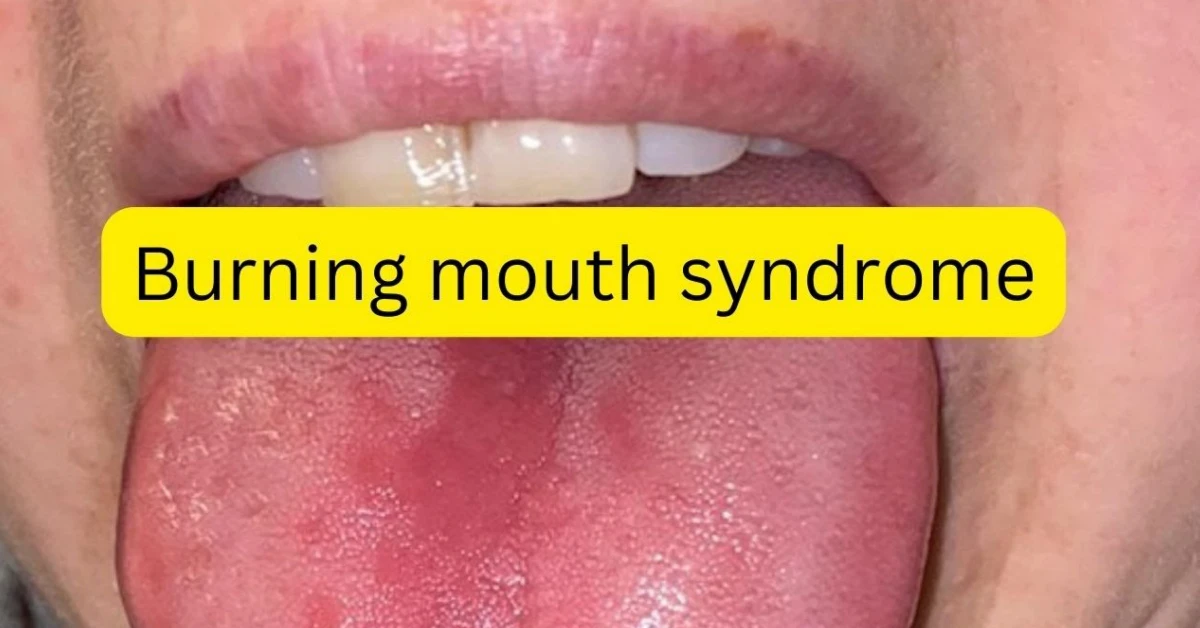


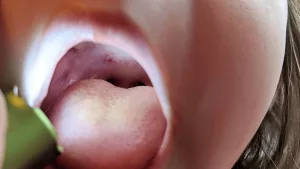
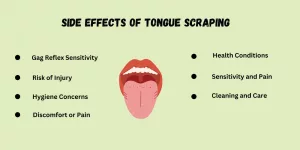

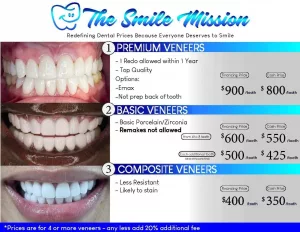
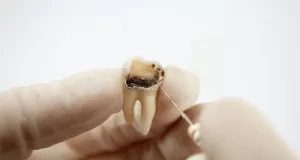
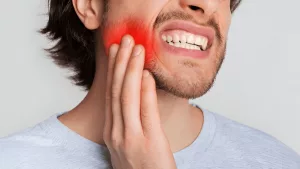

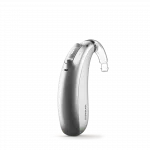
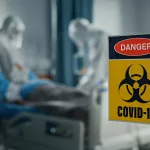











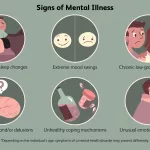
Leave a Reply
You must be logged in to post a comment.